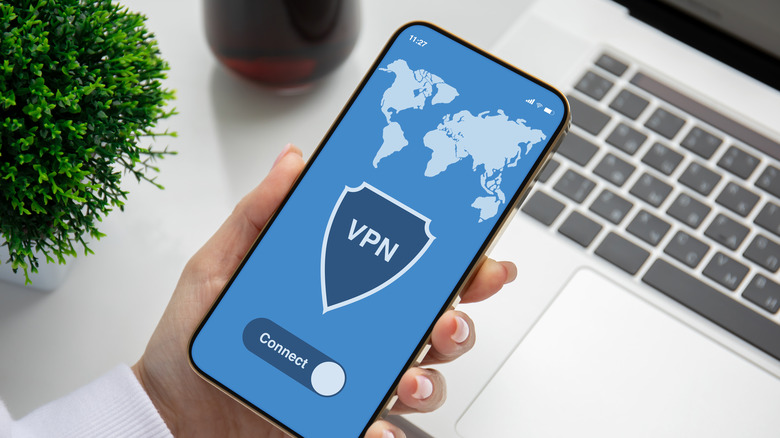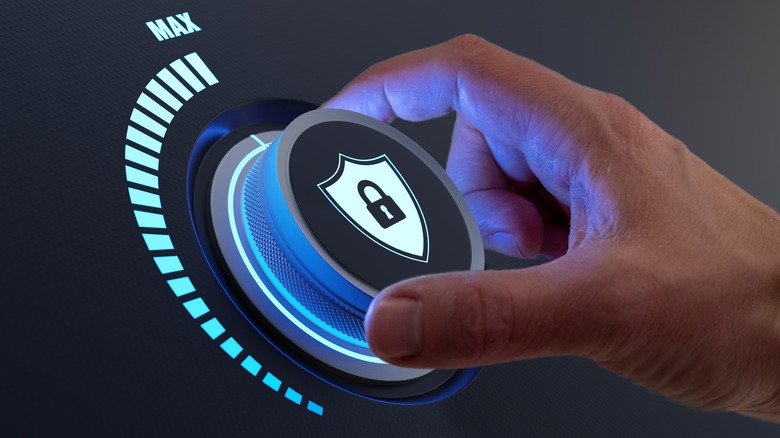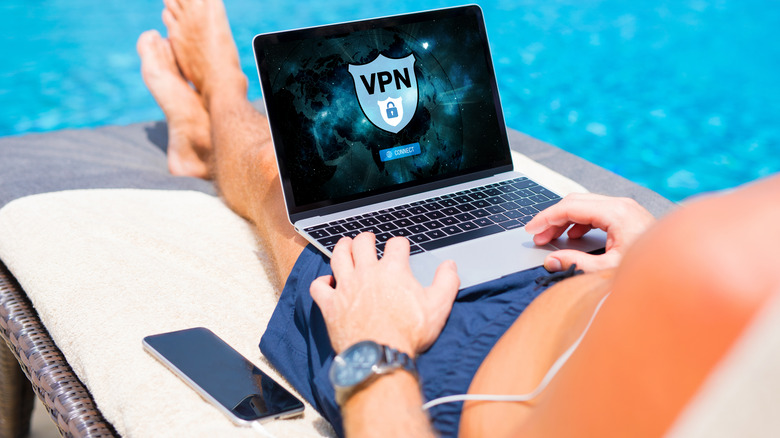Common Myths About VPNs You Need To Stop Believing
If you think that VPNs are only for the extra paranoid or for online lurkers with something to hide, then you are sadly mistaken. For many internet users, virtual private networks, or VPNs as they're commonly known, are essential cybersecurity tools that encrypt your data in order to protect your personal information from hackers and other threats. Its origins date back to 1996 when Microsoft employees created Point-to-Point Tunneling Protocol (PPTP) that allowed people to work securely from home. At that time, however, VPNs were mostly used by businesses and did not go mainstream until around 2010 when they became popular among home users. Today, almost one-third of internet users use a VPN for activities like watching Netflix movies from other countries or handling sensitive information. The industry itself is sky-rocketing and is estimated to be worth $92 billion in 2027 (via Cloudwards).
Despite its popularity, there are surprisingly still a lot of troublesome views on what a VPN does or doesn't do that need to be quashed. From VPNs protecting against malicious threats (it depends) to giving you complete anonymity (it doesn't), we are here to dispel the most common myths about them. Let's dive in.
You get complete security
First off, there is no all-in-one cyber tool that you can use to safeguard your data while you surf the internet. That's why depending solely on a VPN is not your best bet when you want protection against malicious downloads, ads, software, or attachments (via Defending Digital). They are designed to give you only basic malware protection at best. Although they are good at giving you more privacy while you surf the web, this doesn't mean they can protect you from everything. While you might be able to ward off low-level attacks to some extent, it won't protect you if you happen to visit malicious URLs or accidentally downloaded a virus. You should think of them more as a prevention measure rather than your go-to shield.
However, they do an excellent job when it comes to shielding your data when using public Wi-Fi. Public Wi-Fi networks are a notorious known way for scammers to steal your private information (via Clario). Using a VPN while using a shared network adds an extra level of security and greatly lessens the risk of identity theft.
For the highest levels of protection, you can combine your VPN service with antivirus software such as McAfee or Total AV so your data can be safe at all times.
It slows you down
Does a VPN really slow you down? The right answer to this is: it depends. Yes, it does slow down internet speeds but not as much as you think it does and it completely depends on what your circumstances are. Typically, in the past, slow internet speed was a norm for many VPN users. Although today, this is hardly the case due to many recent upgrades in encryption technology. Additionally, your VPN speed relies on how fast or slow your internet is (via Reviews.org). A faster Internet Server Provider (ISP) almost always means faster and more efficient VPN services.
How fast your VPN is can also be attributed to encryption measures. Because one of the main purposes of VPNs is to mask your details from your Internet Service Provider (ISP) and other third parties, they have to take extra measures to encrypt your data. That alone can make your internet process things 5-10% slower. (via NordVPN)
Also, how fast your VPN depends on the location of the server it connects to. Some VPNs like NordVPN automatically connect to the nearest server so you get always get a fast connection wherever you are. But, if you need to connect to a server in another country, you can expect your internet speed to be a little slower.


